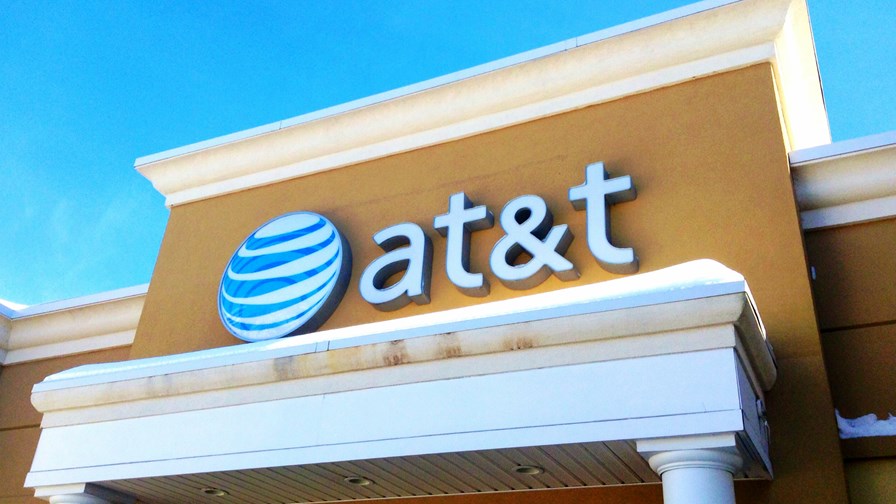
via Flickr © JeepersMedia (CC BY 2.0)
- The Congressional Review Act challenge to the net neutrality roll-back has failed
- There are more irons in the fire to reinstate net neutrality
- In the mean time AT&T shows how the game is going to be played without it
Moves to restore net neutrality by the US Congress came to nought this week when not enough votes could be mustered to get the Congress to use the Congressional Review Act (CRA) to undo the Pai’s net neutrality rollback.
To recap: The effort to restore Net Neutrality in the US has several strands - attempts to reimpose it at the state level with new laws; municipal network builds (or threats of the same), local requirements for net neutrality (maintain neutrality or lose your state government ISP business), lawsuits by 22 states along with tech companies and public interest groups all claiming that the FCC acted arbitrarily in rolling back its net neutrality rules and is overstepping its authority.
Last but not least there was an effort to get the Congress to use the Congressional Review Act (CRA) to undo the rollback. That failed this week when the effort fell short of the number of votes needed,
Naturally that news delighted FCC Chairman Ajit Pai, who took the opportunity to do a verbal war dance, listing “positive results for American consumers since the adoption of the Restoring Internet Freedom Order,” he claimed. “Over the past year, the Internet has remained free and open. Broadband speeds are up, with download speeds in the United States increasing more than 35 percent in 2018, according to a recent report from Ookla. Internet access is also expanding, and the digital divide is closing. For example, a recent report by the Fiber Broadband Association found that fiber was made available to more new homes in 2018 than in any previous year. In short, the FCC's light-touch approach is working. In 2019, we'll continue to pursue our forward-looking agenda to bring digital opportunity to all Americans."
Naturally, all of these Pai talking points are easily disputed - the internet kept on expanding and broadband was steadily built out at the same sort of rate it had been in the preceding years, but there was one important development that Pai failed to list.
When it comes to ‘Why do they hate net neutrality so much?” forget about censorship and free speech issues (that was always a distraction in the debate), and forget about objections to Title II’s alleged ‘over-regulation’ (that was also a Trump-sized distraction). What ending net neutrality was and is all about is gaining power and $$ for monopoly ISPs, a point that AT&T proved last month with a nifty new ‘offer’ involving caps for ‘OTT’ streaming content and none for AT&T’s equivalent services. It’s not even a cunning plan, but rather just the sort of underhand hi-jinks net neutrality advocates have been warning will come with the neutrality protections lifted.
According to Karl Bode, writing in Techdirt just before Christmas, AT&T currently “applies a terabyte cap on most of its fixed-line broadband connections. Users can then pay AT&T an additional $30 per month to avoid this unnecessary limit. Previously, AT&T removed this cap if you bundled the company's traditional TV services. Now, it's removing the caps for free if you bundle AT&T's own streaming service, giving AT&T a pretty obvious leg up on competitors like Amazon, Netflix, or smaller streaming operators.”
Karl points out that while a terabyte a month might seem generous today it won’t once 4K streaming takes off. The idea of imposing commodious limits today (which aren’t even needed from a technical or capacity point of view) is to familiarise and acclimatise users to their existence - after all, you can’t play the generous offer monger with ‘free’ data if it’s all unlimited anyway.
So AT&T’s move shows how, absent proper net neutrality protections, bandwidth caps and ISPs’ own (or partners’) content can eventually be made to work together to give incumbent ISPs a telling advantage in the market - effectively squeezing out competition over time and, with a near content monopoly restored, enabling ISPs to edge up content pricing.
Of course they would be fools to make a sudden move which would risk immediate pushback - we’re talking stealth here - so expect very careful steps with plenty of scope for misleading talking points about ‘free data’ along the way.
Email Newsletters
Sign up to receive TelecomTV's top news and videos, plus exclusive subscriber-only content direct to your inbox.




